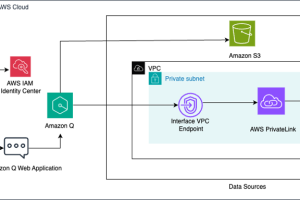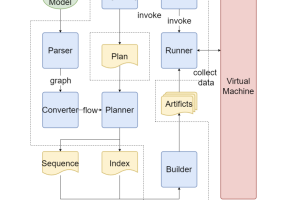In recent years, machine learning has made significant strides in various domains, revolutionizing industries and enabling groundbreaking advancements. However, alongside these achievements, the field has also encountered a growing concern—adversarial attacks. Adversarial attacks refer to deliberate manipulations of machine learning models to deceive or exploit their vulnerabilities. Understanding these attacks and developing robust defenses is crucial to ensure the reliability and security of machine learning systems. In this article, we delve into the world of adversarial attacks, explore their potential consequences, and discuss countermeasures to mitigate their impact.
The Emergence of Adversarial Attacks:
As machine learning models become increasingly prevalent in critical applications, adversaries seek to exploit their weaknesses. Adversarial attacks take advantage of vulnerabilities inherent in the algorithms and data used to train models. By introducing subtle modifications to input data, attackers can manipulate the model’s behavior, leading to incorrect predictions or misclassification. These attacks can have serious implications, ranging from misleading image recognition systems to evading fraud detection algorithms.
Understanding Adversarial Vulnerabilities:
To comprehend adversarial attacks, it’s essential to understand the vulnerabilities that make machine learning models susceptible. These vulnerabilities often arise from the lack of robustness to small perturbations in input data. Models trained on specific datasets may fail to generalize well to unseen data, making them vulnerable to manipulation. Additionally, the reliance on gradient-based optimization methods can expose models to gradient-based attacks, where adversaries exploit the gradients to fool the model.
Types of Adversarial Attacks:
Adversarial attacks come in various forms, each targeting specific weaknesses in machine learning systems. Some notable attack techniques include:
- 1. Evasion Attacks: Adversaries generate modified inputs to mislead the model, causing it to make incorrect predictions. These modifications are carefully crafted to appear benign to human observers while causing significant perturbations in the model’s decision-making process.
- 2. Poisoning Attacks: In poisoning attacks, adversaries manipulate the training data to introduce biases or malicious patterns. By injecting carefully crafted samples into the training set, attackers aim to compromise the model’s performance and induce targeted misclassifications.
Defending Against Adversarial Attacks:
As the threat of adversarial attacks looms large, researchers and practitioners have developed a range of defenses to bolster the security and robustness of machine learning models. Some prominent countermeasures include:
- 1. Adversarial Training: This technique involves augmenting the training process with adversarial examples, thereby exposing the model to a broader range of potential attacks. By incorporating adversarial samples during training, the model learns to better recognize and defend against adversarial manipulations.
- 2. Defensive Distillation: This defense mechanism involves training the model on softened probabilities generated by another model. By introducing a temperature parameter during training, the model becomes less sensitive to small input perturbations, making it more robust against adversarial attacks.
The Role of a Machine Learning Consulting Company:
In this complex landscape of adversarial attacks and defenses, machine learning consulting companies play a crucial role. These companies specialize in providing expertise, guidance, and tailored solutions to address the security challenges faced by organizations deploying machine learning systems. By leveraging their deep knowledge of adversarial attacks and cutting-edge defense mechanisms, these consulting firms assist businesses in fortifying their machine learning models against potential threats.
With their comprehensive understanding of the vulnerabilities and attack techniques, machine learning consulting companies help organizations implement robust defenses, conduct thorough vulnerability assessments, and develop proactive strategies to mitigate risks. By collaborating with a trusted machine learning consulting company, businesses can navigate the intricate world of adversarial attacks with confidence, safeguard their machine learning systems, and ensure the integrity and reliability of their AI-powered solutions.
Conclusion: As machine learning continues to reshape industries and society, the need to understand and defend against adversarial attacks grows ever more critical. Adversarial attacks pose a significant challenge, threatening the reliability and integrity of machine learning systems. By comprehending the vulnerabilities, exploring different attack techniques, and implementing robust defenses, we can strengthen the resilience of machine learning models and ensure their safe deployment.
Subscribe to our Newsletter
Stay up-to-date with the latest big data news.











